Understanding the Importance of Crowd Management at Events
Crowd management is a critical component of event planning, ensuring the safety, comfort, and security of all attendees. Whether it’s a sports event, a concert, or a large-scale public gathering, the role of crowd management cannot be overstated. A well-managed crowd not only ensures a positive experience for everyone involved but also mitigates potential risks such as accidents, violence, or crowd surges. Security guards are at the forefront of this effort, leveraging their skills and training to control crowd movement, respond to emergencies, and prevent security breaches.
Effective crowd management requires a careful balance of proactive strategies and reactive responses. This is why professional event security services in Melbourne are essential to ensuring smooth operations at any large-scale event. Security guards are equipped to handle all aspects of crowd control, from managing entry points to guiding the flow of attendees, creating a safe environment for everyone involved.
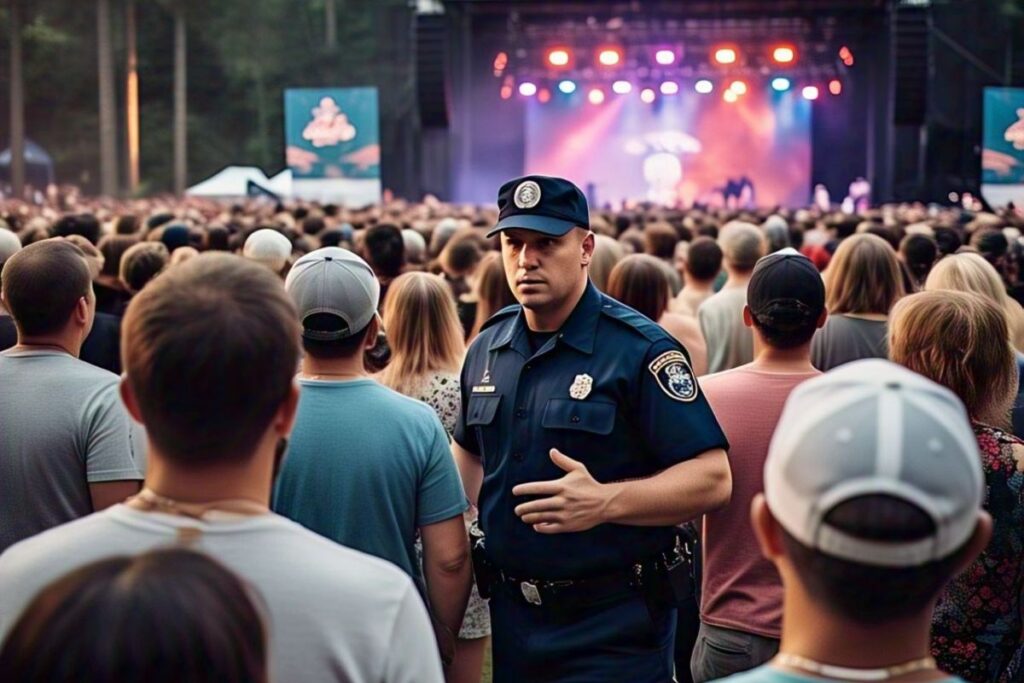
Key Responsibilities of Security Guards in Managing Event Crowds
Security guards play a diverse and crucial role in crowd management at events. Their responsibilities go beyond mere supervision; they act as both deterrents and responders to ensure crowd control. Some of the key responsibilities include:
- Monitoring crowd behavior: Security guards observe attendees, ensuring that they follow event protocols, refrain from disruptive actions, and respect others’ space. Their presence alone is often enough to prevent unruly behavior.
- Controlling access points: Ensuring only authorized individuals have access to restricted areas or event spaces is another critical duty. Security guards monitor entrances, exits, and VIP sections, maintaining order and preventing overcrowding.
- Responding to incidents: Whether it’s a medical emergency, a fire alarm, or an altercation, security personnel are trained to react swiftly and decisively. Their role involves managing these incidents in real time to prevent further escalation.
- Guiding attendees: Especially in large venues, security guards provide valuable assistance in directing guests to their designated areas, helping maintain an orderly flow of people.
By effectively executing these responsibilities, security guards contribute directly to the overall success and safety of an event.
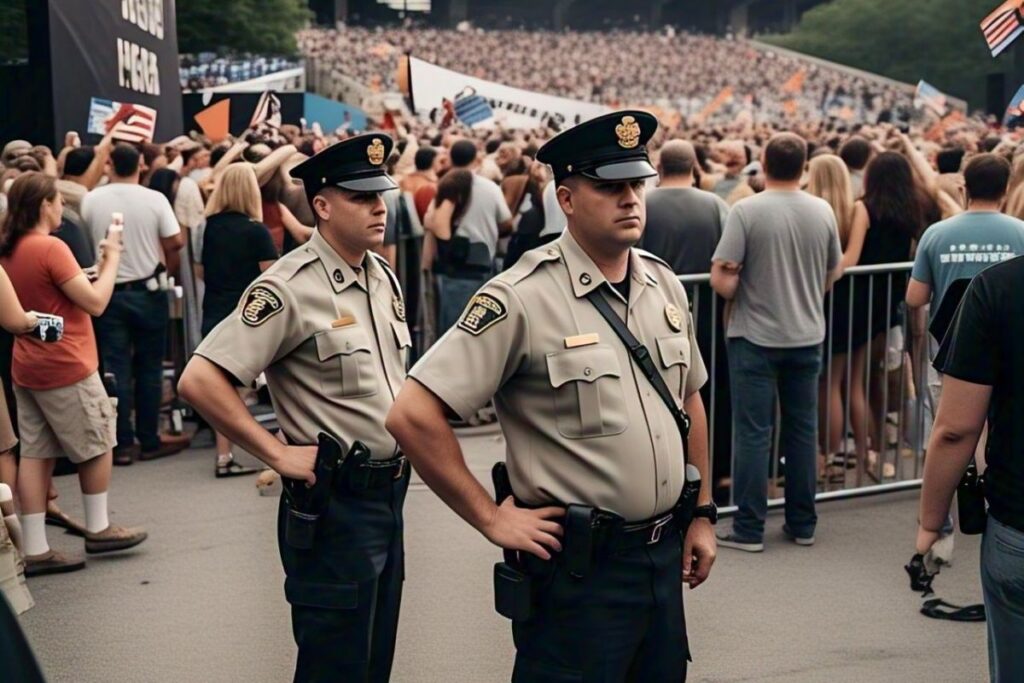
The Strategic Benefits of Security Guards in Event Crowd Control
Hiring professional security guards for crowd control offers numerous strategic advantages. Their expertise provides peace of mind for both event organizers and attendees, ensuring that potential threats are minimized, and that any issues are dealt with efficiently. Key benefits include:
- Enhanced safety and security: Security guards are trained to prevent crowd surges, unauthorized access, and other security risks, ensuring a safe experience for all attendees. They also play a vital role in risk assessment and crowd behavior monitoring.
- Rapid incident response: Guards are trained to handle emergencies quickly, whether it’s a medical incident or crowd-related violence. Their swift response is crucial in minimizing harm and ensuring smooth event operations.
- Increased discipline and order: Security guards help maintain discipline, reducing the likelihood of conflicts or disturbances. Their presence instills a sense of security and respect, promoting a peaceful environment at the event.
- Peace of mind for attendees and organizers: Knowing that trained professionals are handling security allows both guests and event organizers to focus on enjoying or running the event without concern for safety.
By incorporating professional security teams, event organizers ensure that their event runs smoothly and securely, reducing the risks and challenges associated with large gatherings.
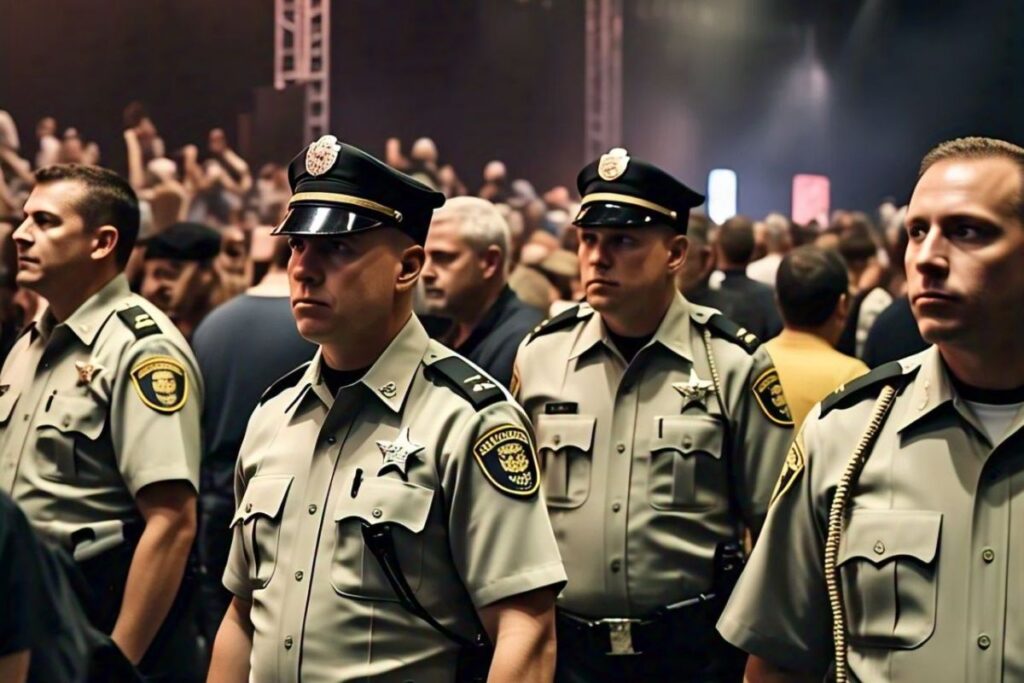
The Essential Training and Expertise of Security Guards for Crowd Management
The training and expertise required for effective crowd management go far beyond basic security procedures. Security guards assigned to events undergo specialized training to prepare them for the unique challenges they may face. Key aspects of their training include:
- De-escalation techniques: Crowd control often involves preventing situations from escalating into conflict. Security guards are taught to manage potential confrontations through communication and negotiation, avoiding physical altercations whenever possible.
- Emergency response procedures: Guards are trained in first aid, CPR, and emergency evacuation procedures. Their ability to respond quickly to incidents ensures that medical help is on hand if needed and that the crowd remains under control during emergencies.
- Crowd psychology understanding: An understanding of crowd behavior is crucial. Security personnel are trained to anticipate crowd reactions, allowing them to take preventive actions before problems arise.
- Clear communication skills: Guards must communicate effectively with attendees, event staff, and other security personnel. They use radios, body language, and direct communication to relay important information swiftly.
This combination of practical training and psychological expertise ensures that security guards can handle any crowd-related challenge efficiently and effectively.
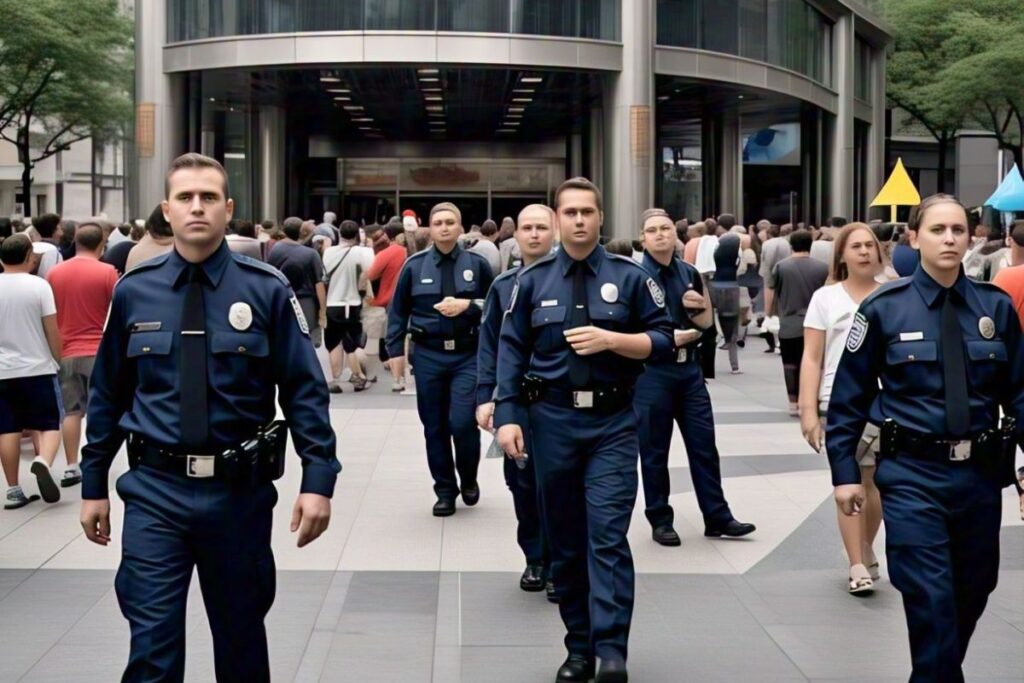
Tools and Technology Utilized by Security Guards for Efficient Crowd Management
To further enhance their ability to manage large crowds, security guards are equipped with an array of tools and technologies that allow them to monitor and control the situation with precision. Some of the key tools include:
- Walkie-talkies and radios: Instant communication with other security staff ensures that everyone is on the same page and can respond to incidents swiftly. Walkie-talkies are especially vital in large, noisy venues where verbal communication may be difficult.
- Surveillance cameras: These provide real-time monitoring of the crowd, helping security personnel detect potential threats or disruptions early. Surveillance also acts as a deterrent to anyone considering causing trouble.
- Metal detectors and bag checks: To prevent dangerous items from entering the event, security personnel often perform bag checks and use metal detectors to screen for weapons or prohibited items.
These tools not only enhance the efficiency of security personnel but also create a more secure environment for all attendees. Learn more about the role of security guards in managing workplace conflicts to see how these skills extend beyond just event security.
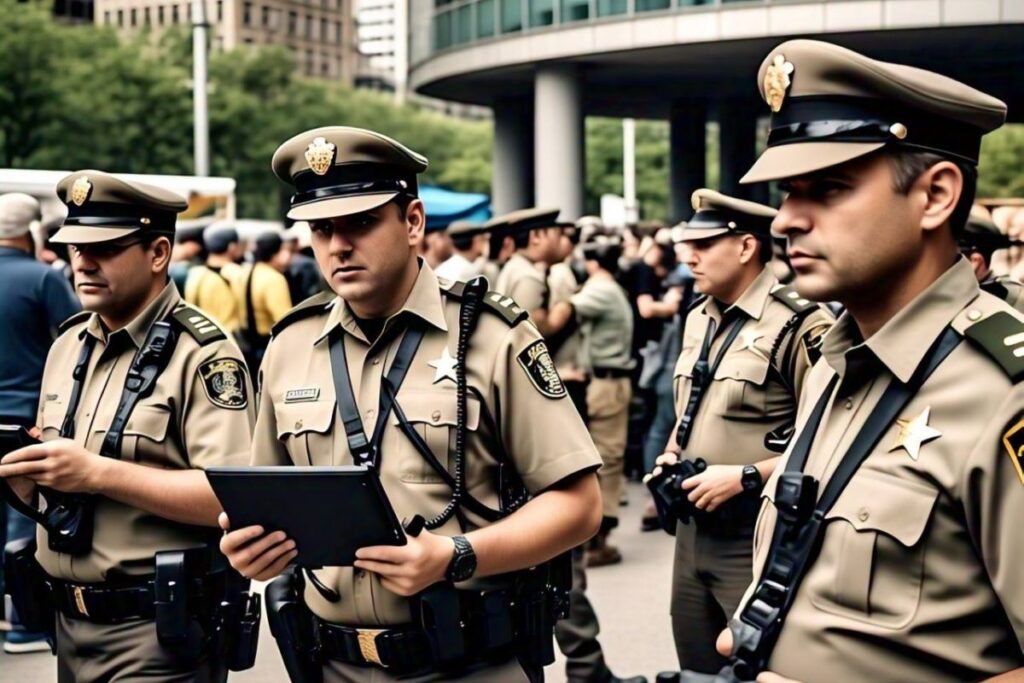
Conclusion:
In conclusion, security guards are indispensable to the successful management of event crowds. Their presence helps mitigate risks, maintain order, and ensure the safety of everyone involved. From monitoring attendee behavior to responding to emergencies, their training and expertise make them essential to large-scale event management. For event organizers, hiring professional security services is not just a precaution—it’s a critical investment in the safety and smooth operation of the event.
For more insights into how security guards manage complex situations, explore our articles on common challenges faced by security guards and how to become a security guard in Australia.

